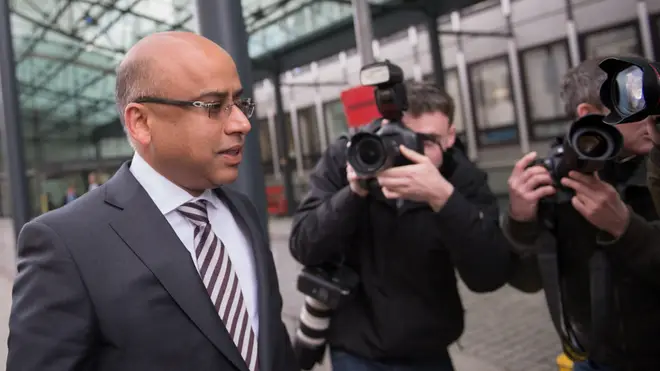
Ben Kentish 10pm - 1am
9 June 2021, 12:34

Simec Atlantis Energy said that its biggest shareholder is facing problems in the British Virgin Islands.
A group owned by Sanjeev Gupta and his family is fighting the potential administration of one of their British Virgin Islands companies which owns a stake in the firm behind one of the world’s biggest tidal power projects.
Simec Atlantis Energy has been told by the Gupta Family Group (GFG) Alliance that it has started legal proceedings to challenge the appointment of receivers at a British Virgin Islands holding company.
Simec Atlantis said that 43% of its shares are owned by Simec UK Energy Holdings (SUEH), which is part of the GFG Alliance, a loose group of companies and investments which are linked to the Gupta family.
In May, Simec Atlantis revealed that SUEH was facing a purported appointment of receivers, and that GFG was considering its options, the announcement sent shares plummeting by more than a quarter.
On Wednesday its shares dropped a further 5% following the update.
The business is incorporated in Singapore, listed in London and has its head office in Edinburgh.
The receivers are reportedly also applying for a waiver under the part of Singapore law which could require them to make an offer to buy the rest of the shares in Simec Atlantis.
Simec Atlantis was launched in 2005 and is best known for MeyGen, the “world’s largest” tidal power project, according to the company, off the coast of northern Scotland.
GFG’s involvement with Simec Atlantis started in December 2017 when the SUEH was handed a stake of just under 50% in exchange for the Uskmouth coal power plant by Newport in Wales.
The idea was to convert the dirty coal plant into burning non-recyclable waste, with first power being produced in 2020.
But earlier this year the Welsh Government stepped in to announce a moratorium on all new energy from waste projects and took over the planning permission process for Uskmouth from the local company.
In May the Serious Fraud Office confirmed publicly for the first time that it was investigating suspected fraud, fraudulent trading and money laundering among GFG Alliance, including its financing arrangements with Greensill Capital.
The SFO did not reveal what exactly it is investigating.
The Financial Times has revealed that GFG borrowed money from Greensill which was secured against so-called “future receivables”, forecasts of invoices for deals that it had not signed.
“As part of those programmes, Greensill selected and approved companies with whom its counterparties could potentially do business in the future,” Mr Gupta himself explained in a letter to the newspaper.